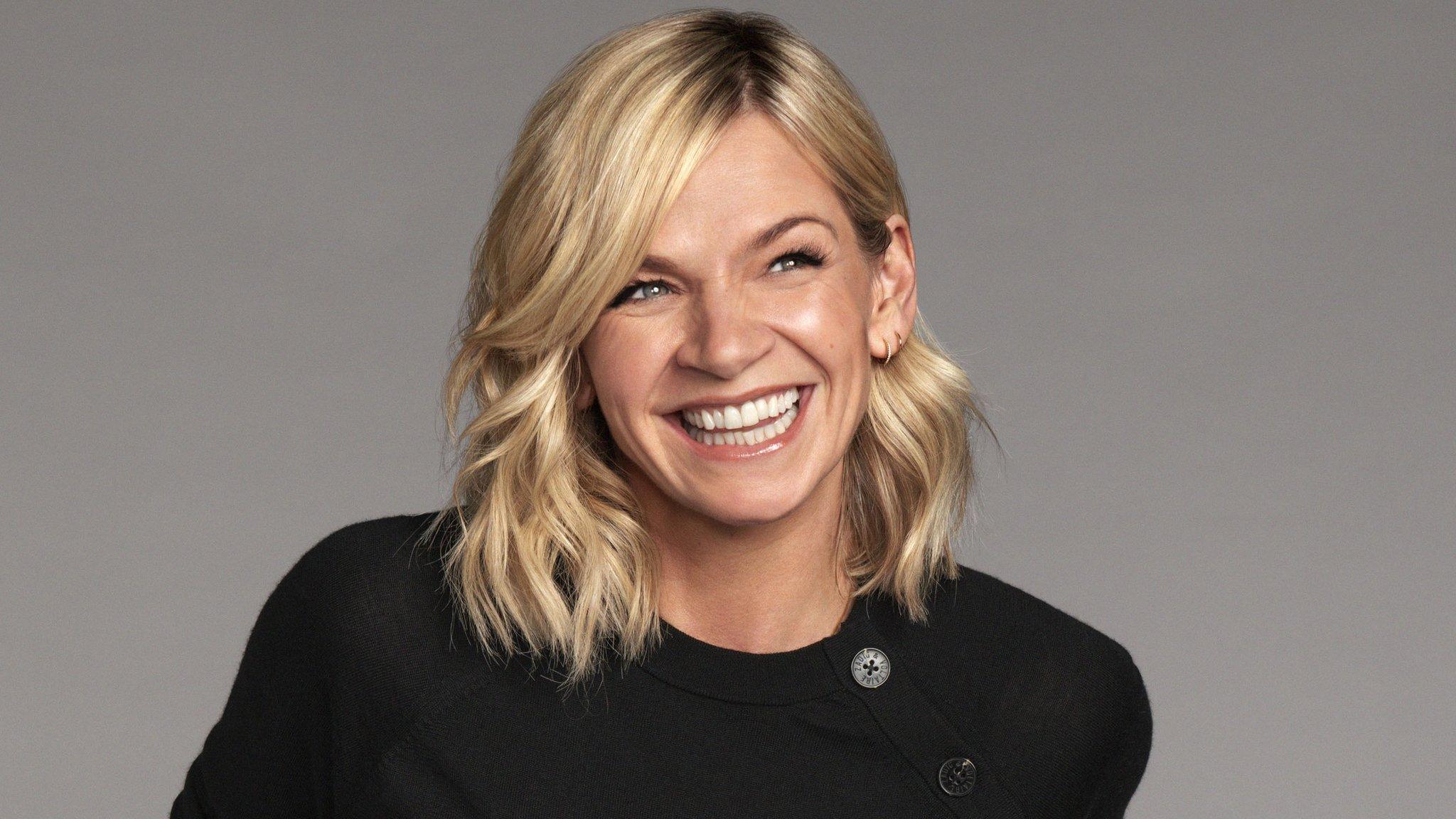Simon Mayo: There's a gap in the radio market
- Published
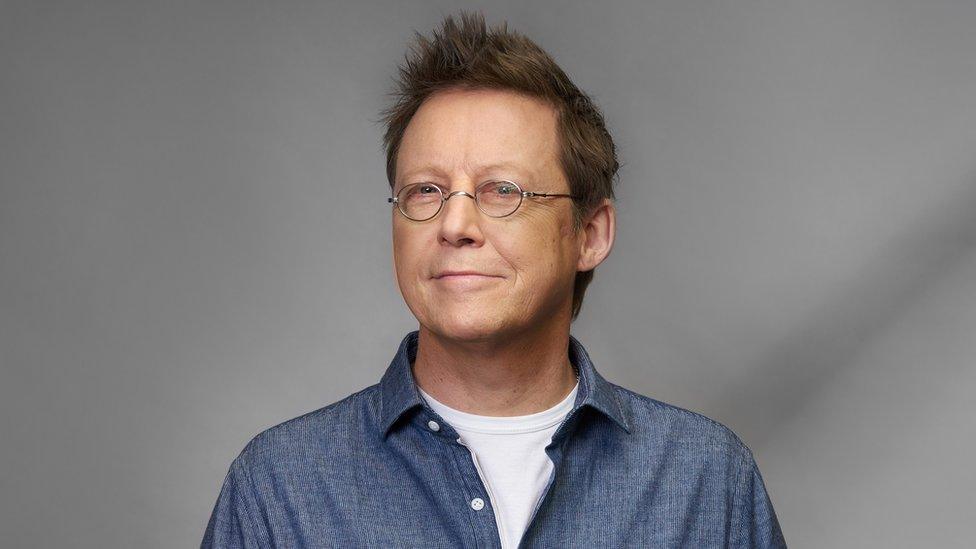
Mayo left his Radio 2 show in December but continues to host his 5 Live film show
One Golden Square in central London is a building stuffed with radio stations.
Turn a corner and you might spot Dave Berry presenting the breakfast show from the Absolute Radio studio. Walk up a flight of stairs and you'll find Kiss sharing a floor with Planet Rock.
But those who prefer their music a little more Mozart than Motorhead would be best advised to keep climbing until they reach the top of Bauer Media's headquarters.
That's where you'll find Scala Radio, the company's newest station, which began broadcasting last week.
Arriving at its studios seven days on from the station's launch, BBC News meets Scala's star signing, Simon Mayo, who is reflecting on his first week on air.
"It's fair to say I'm a lot calmer today than I was last Monday," he laughs.
"It's fairly tough starting a new show, but when you're starting a new show on a new station, that was something else. So last Monday was a scary place.
"Even though I've been doing this for a while, that inner voice is always nagging saying, 'What if you mess up the first link? What if there's no-one listening?'"
The presenter, who has launched his new programme three months after his departure from Radio 2, need not have worried.
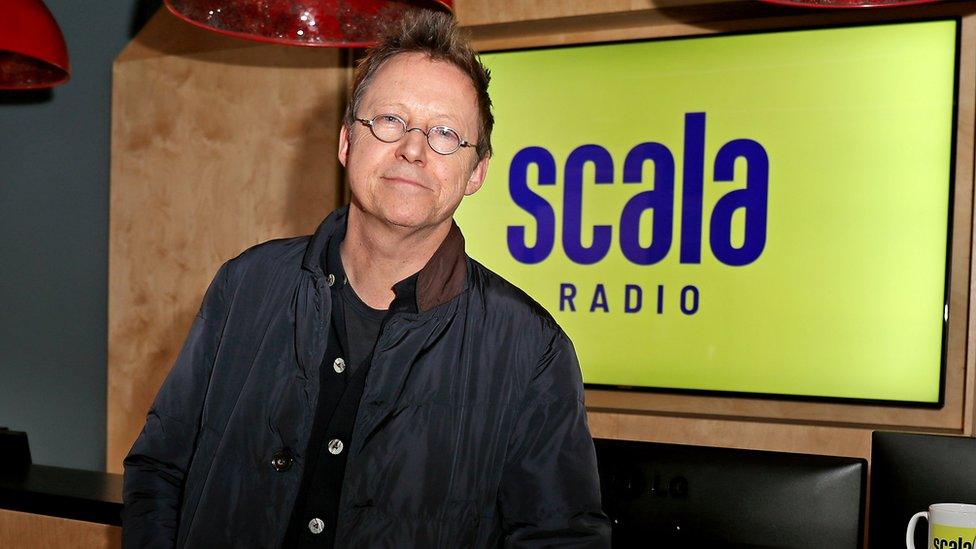
Mayo's 10am-1pm show launched the station last Monday
"Mayo, one of the warmest and most natural radio talkers, again sounds as if he's somewhere he wants to be," wrote Mark Lawson in The Guardian, external.
"Despite a few technical hitches, he sounded happy and excited to be back in control of a desk and his own destiny," said Charlotte Runcie in The Telegraph, external.
The many allusions to Mayo being back to his old self are a reference to the difficult last few months he experienced on Radio 2 Drivetime.
Last year, the station hired Jo Whiley to join him as co-host, but it quickly became apparent they had little on-air chemistry, and listeners complained about the change.
Since leaving the show in December, Mayo has spoken extensively, in interviews with The Radio Times, external, The Daily Mail, external and ITV's Lorraine, external among others, about how he found the experience "an awkward, stressful few months".
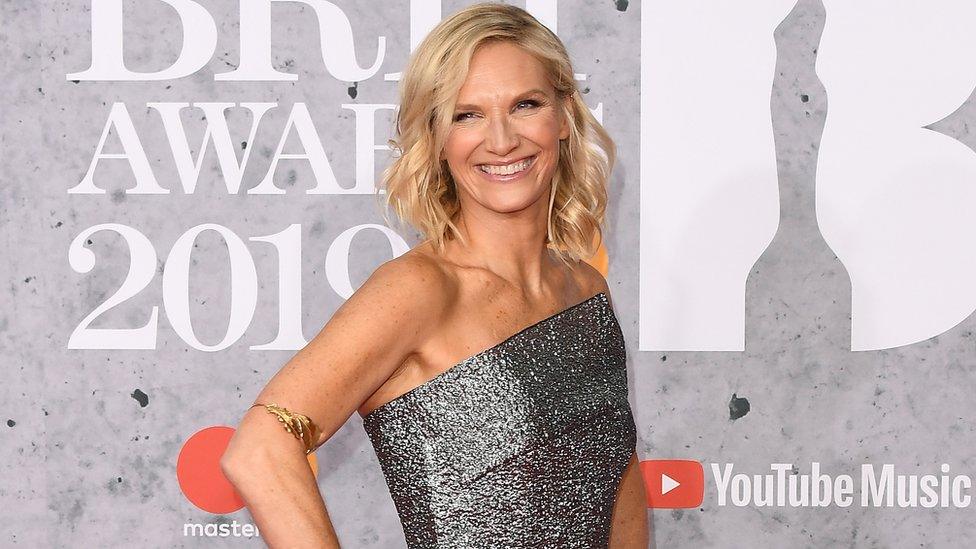
Jo Whiley, pictured at last month's Brit Awards, joined Mayo as a co-host at Radio 2
"There was genuine pressure from the top about improving the number of women in daytime," he explained.
Adding Whiley as a co-host, he added, was something Radio 2 "thought would be an improvement and make the network more contemporary. They made a mistake."
The station now has a much more diverse weekday line-up, with Sara Cox the new host of Drivetime and Zoe Ball stepping into the shoes of Chris Evans, who left the breakfast show in December.
"I certainly can't speak about the new Radio 2 line-up because I'm not a part of it, and I haven't listened, because I think I'm entitled to a holiday," Mayo says.
"But I think radio, like every big industry, has been behind the curve on that. And they've had a lot of catching up to do very fast. But I don't think radio is any different to television or films or banking or the corporate world, so I think some very rapid catch-up has been taking place and that's a good thing."
Defining 'classical'
Mayo hasn't left the BBC altogether and continues to front his 5 Live film show with Mark Kermode, but Scala is now the 60-year-old's main weekday gig.
William Orbit, Angelica Bell and Goldie are among the other names bosses at the new station hope will lure listeners.
The playlist is varied, with a more mainstream focus than some of its competitors.
"It's not so much classical music as orchestral," suggested Trevor Dann on the RadioToday podcast, external, "because [Scala]'s playing a lot of more modern pieces."
In response, the managing director Steve Parkinson explained the station has a "70/30" split in terms of the music. "It's 70% those familiar masters, the Beethovens, but the 30% are things that might surprise," he said.
Mayo recalls: "On one of my first programmes, someone rang up and wanted the theme song to Inspector Morse. Which is an orchestral piece.
"The purists will go, 'I don't think you can put the Inspector Morse theme alongside Mozart's piano concertos', and you might not like it as much... but we could sit down and argue for a long time as to what classical music is.
"On our first day, when Keith Flint from the Prodigy died, we played Voodoo People by 2Cellos, external. Well that's just two cellos, is that orchestral? I don't know, but it sounded appropriate."
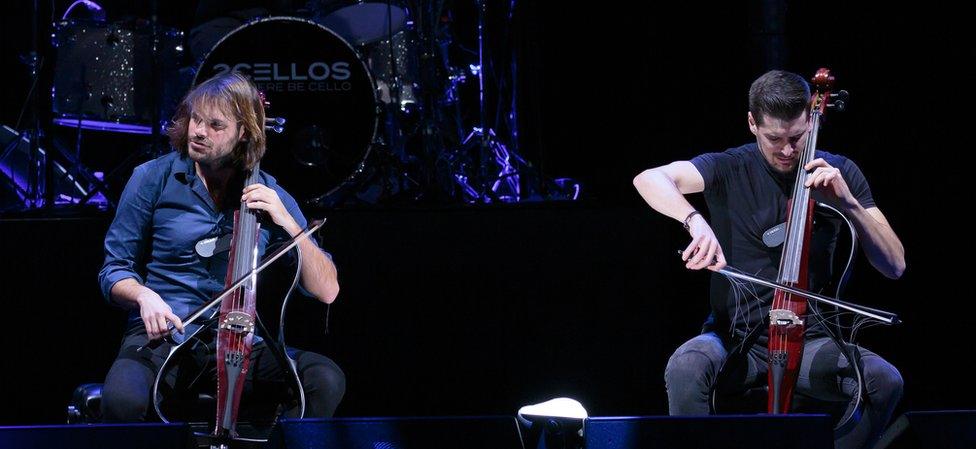
A cover of Voodoo People by 2Cellos was played in tribute to The Prodigy's Keith Flint
Writing in The Observer at the weekend, Miranda Sawyer said, external: "Scala seems to be aiming not for Radio 3, but for the sweet, and potentially very lucrative, central Venn diagram overlap of Radio 2 and Classic FM. It has a good chance of success."
But nailing down exactly what success will look like is tricky.
In the last three months Mayo and Whiley presented together, they were pulling in 6.2 million listeners, external to Radio 2 Drivetime.
To go from that to building a new station up from scratch is a nerve-wracking prospect, but Mayo won't be drawn on exactly how many listeners he's aiming to attract to consider the venture a success.
"I leave those things to the bosses to decide," he says. "They have shown me figures, [which say] they want this many people by this time, and this is the audience they're after.
"So they do that because they're commercial people. They've got advertisers to consider and markets to consider."
To succeed, Scala will have to have a significantly different offer from existing classical stations, which Mayo argues it does.
"Radio 3 and Classic FM do what they do very well," he acknowledges. "The assessment here is there's an audience that is waiting for the opportunity to join this world.
"Of course we'll play you the big songs by the big composers, but there's also the new stuff, the soundtracks, the video games, TV themes, that people want to hear. So I think the main gap in the market is that we've always said, unashamedly, that we're an entertainment station."
Related topics
- Published22 June 2018
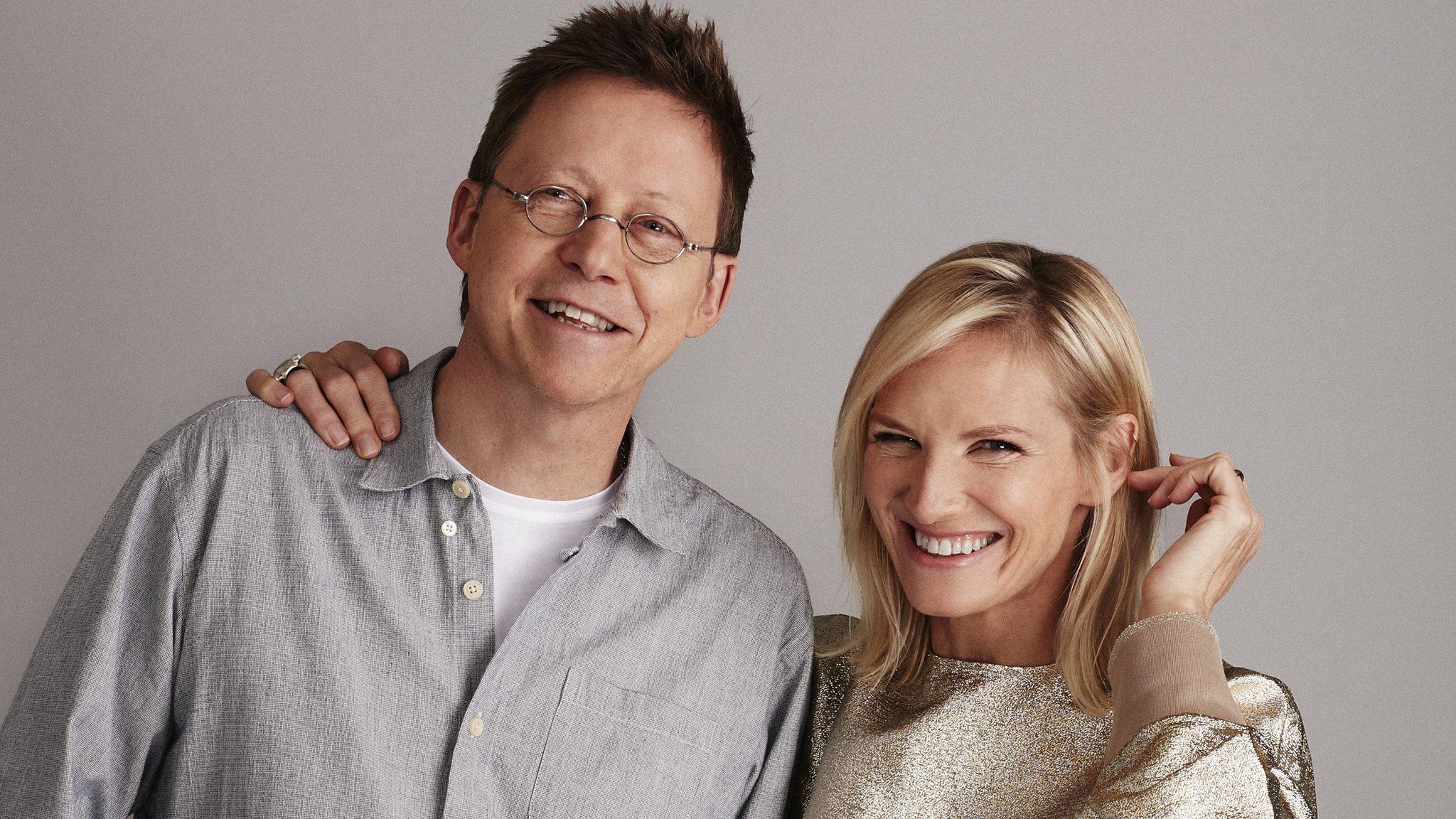
- Published5 February 2019
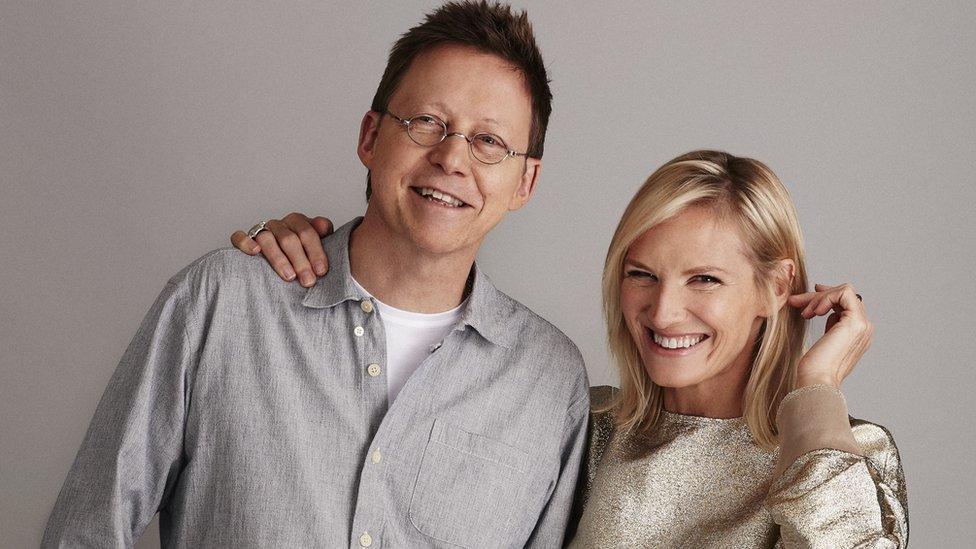
- Published4 March 2019
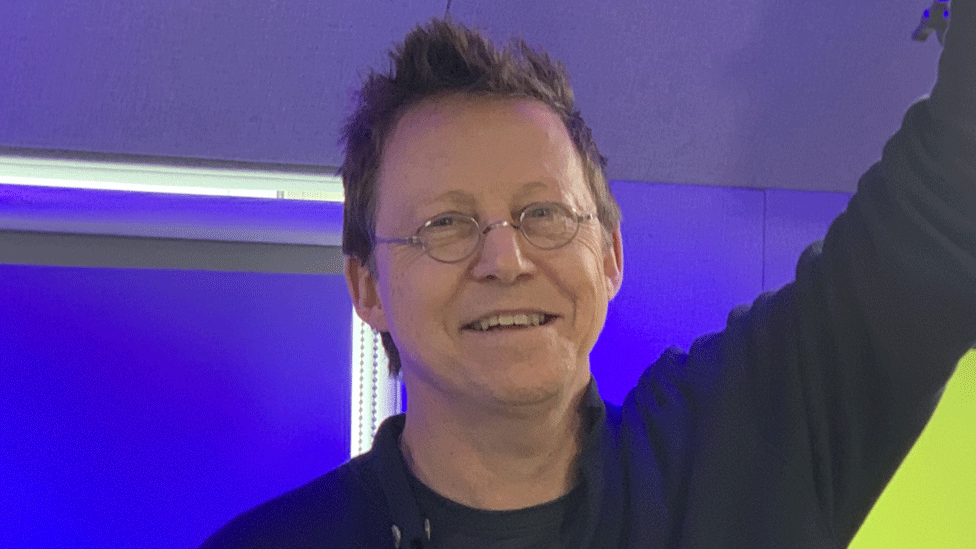
- Published11 January 2019
